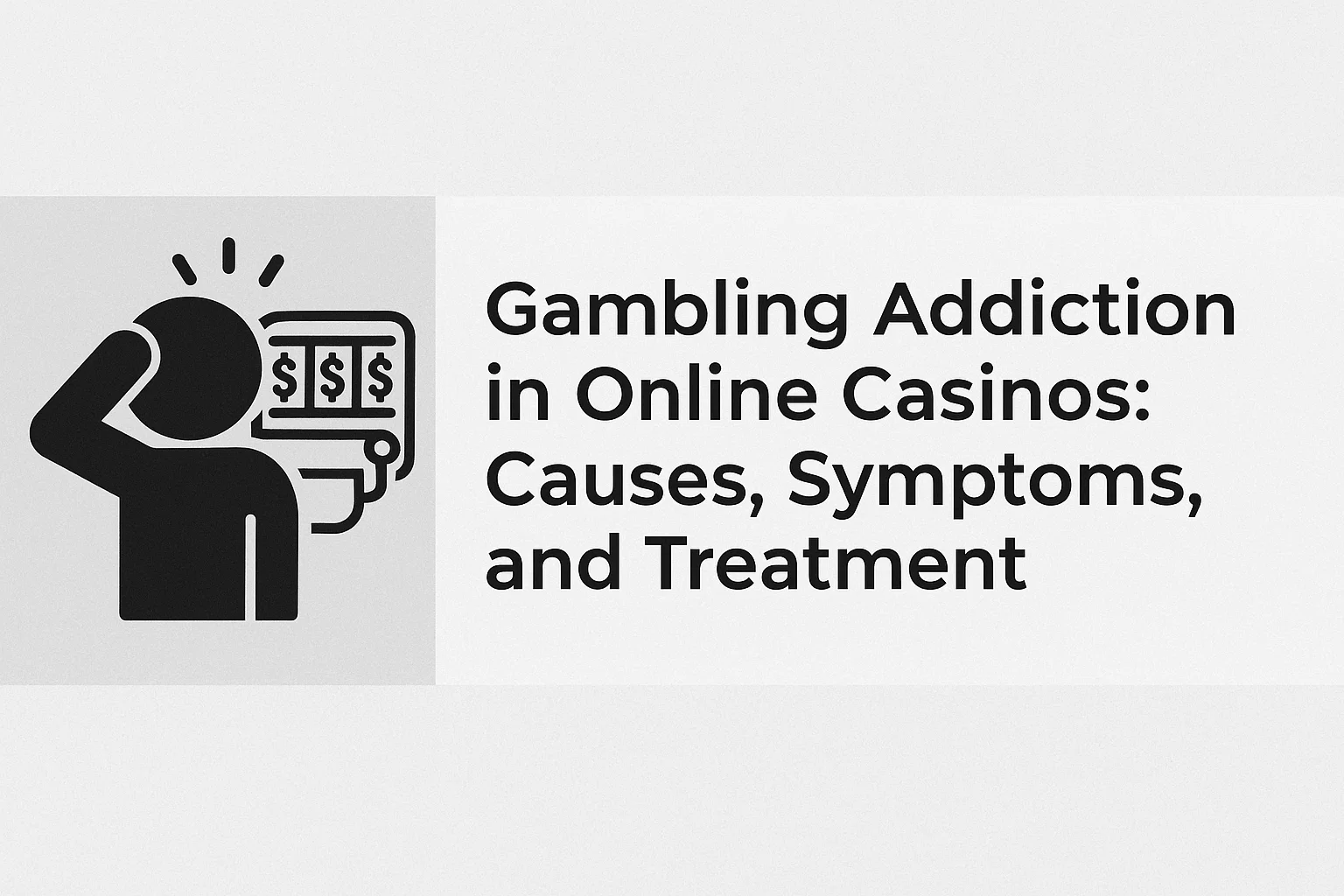
Why there is gambling addiction and why it's so bad. We here outline the main symptoms of gambling disorder, how it might be cured, and how to overcome the problem. If you or someone around you has a problem, you can seek help for gambling problems with professional services and tailored materials.
What Is Gambling Addiction?
Gambling disorder (compulsive gambling, problem gambling, or gambling addiction) is a disorder where the person loses control over money-gambling activity. The behavior is harmful to the person and their family and destroys daily life and work. Gambling disorder is currently a mental disorder in the Diagnostic and Statistical Manual of Mental Disorders (DSM-5).
The most common understanding of gambling is lotteries, betting on sports, and bricks-and-mortar and online casinos. But harm can also arise through share market speculation, selling, money competitive sport betting, or even spur-of-the-moment expenditure on mobile phone or internet games. Most people are unaware that these are all forms of gambling, and that is all the more difficult for them to accept loss of control, according to the Royal College of Psychiatrists.
What Contributes to Gambling Addiction?
Three primary avenues to gambling problems are identified by the American Psychological Association:
- Chasing frequent wins
- Gambling as an escape from stress, depression, or trauma
- Being antisocial or impulsive in personality
Gambling engages the reward system of the brain to allow one to feel a "high" with ongoing discharge of dopamine. The greater the potential for losing money, the greater the emotional high upon winning.
Risk factors recognized by the Royal College of Psychiatrists are:
- Gender: More susceptible in men, though cases in women are on the rise
- Young age
- Low income and financial problems
- Unemployment
- Poverty and social disadvantage
- Genetics: Family history of gambling or other dependency
- Other dependency
- Mental illness conditions such as depression, anxiety disorders, or personality disorders
- Employment in gaming industry
- Poor general health or chronic illness
- Medications that change levels of dopamine
- Easy access to gaming venues
Symptoms of Gambling Addiction
The main symptoms are:
- Preoccupation with gambling (preoccupation with games already played or expected games)
- Increasingly betting in a bid to create the same level of excitement
- Gaming for a longer time than planned
- Gaming to escape from problems, negative emotions, or tension
- Feeling out of control
- Restlessness or bad temper on trying to cut down or stop
- Recurrent, unsuccessful efforts to control
- Chasing losses by continuation of gaming following loss
- Lying about the extent of gambling
- Loss of job, achievements, or relationships due to gambling
- Reliance on family members, friends, or loan sharks to pay for gambling expenses
If the person experienced four or more such symptoms over the last year, his/her disorder is a gambling disorder, as defined in the American Psychiatric Association's DSM-5.
The addiction is episodic (with relapses) or chronic (with symptoms for years). With proper treatment, remission is possible.
Phases of Gambling Addiction
There are three phases of development laid down by American psychiatrist Robert Custer:
- Winning phase: The first success is thrilling and overconfident, leading one to bet larger sums. This goes on until big losses start.
- Losing phase: The gambler withdraws from social contact, tries to recoup losses by usually borrowing money, and refuses to stop pursuing what is already lost.
- Desperation phase: The gambler gamles more alone with feelings of desperation and guilt. This can lead to depression, crime, or even suicidal behavior.
Gambling disorder often develops alongside other mental disorders such as depression, anxiety, or drug use, so it is even harder to treat. If you or someone you know presents with symptoms, it is important to seek professional assistance immediately.
How Do You Treat Gambling Addiction?
Gambling disorder affects individuals differently. It will alter the brain's reward and excitement functions. The brain will be brought back to normal through treatment in the long run.
What Can Help?
- Consult a family doctor.
They may refer you for specialized services. In Uganda, there are government programs that offer free psychiatric treatment for addicts. There is the National Gambling and Lotteries Regulatory Commission that keeps lists of public institutions providing mental health services. - Consult a mental health professional (psychologist, psychotherapist, or psychiatrist).
The optimal treatment is an association of psychotherapy and medication. Cognitive-behavioral therapy (CBT), psychodynamic therapy, group therapy, and family therapy are most typical. Peer support groups can also play a crucial role.
Medication can be suggested by psychiatrists if needed, but there is no pill to cure gambling addiction. Instead, medications can treat associated conditions along with symptoms.
Self-Help Resources for Gambling Addiction
Problems with gambling may have a significant impact on life, but there are various ways of getting control back, as stated in the National Gambling Disorder Survey Report:
- Use professional help
- Develop new life goals and designs
- Engage in other leisure activities/hobbies
- Use assistance from family and friends
- Develop budget control plan
- Lead a healthy lifestyle
- Use mindfulness and self-insight strategies
- Set limits and control your behaviors
- Block gambling using internet settings or mobile apps
- Join self-exclusion programs
- Track progress using support apps
- Steer clear of triggers
- Join gamblers with addiction support groups
- Invest in personal development and learning new skills